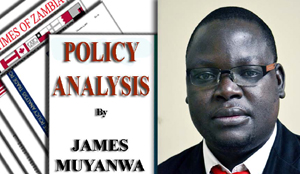 THE tone for the 2016 national Budget has been set and the stakeholders, at least, know what to expect come October 2015.
THE tone for the 2016 national Budget has been set and the stakeholders, at least, know what to expect come October 2015.
This follows the release of the Medium Term Expenditure Framework (MTEF) by the Ministry of Finance last week.
The 2016 national Budget is an important undertaking for the current government administration in more ways than one.
It will seal the five-year term of office for the Patriotic Front (PF) having come into power in the 2011 general elections.
It is within the 2016 fiscal year that the next presidential, parliamentary and local government elections are expected to be held.
The 2016 national Budget has to, therefore, take into consideration these facts and obviously accommodate the imminent preparatory expenditures like on voter registration.
At another level, through the 2016 national Budget, the Government should balance between the need to invest in the growth of the economy on one hand and the need to address concerns of the stakeholders, like workers, unemployed youths and others, on the other.
This is the challenge Finance minister, Alexander Chikwanda and his team of experts at the ministry have to meet by October 2015 when the budget is expected to be presented to Parliament.
For now, salient points have come and anyone should be able to tell which direction the 2016 national Budget will take without mentioning any figures.
But before we go deep into some of the prominent provisions of the proposed budget and the MTEF we, this week, want to focus on the 2015 fiscal year, to lay the foundation.
The first six months of this fiscal year for Zambia have been rough, what with the drastic adjustment in the expected revenue from the mining sector.
This followed the changes to the mining tax regime which entailed the Government foregoing more than K2 billion of its initially-projected revenue from that sector for the year.
Yes, the Government has said that during the first half of 2015, it planned to raise a total of K17.1 billion in revenues and grants.
It has not been able to raise that much but managed to garner K16.1 billion, leaving with the difference of K1 billion.
Against the planned expenditure of K21.6 billion for the period, the Government spent K20.9 billion and was forced to borrow more than that plan.
It planned to borrow K4.5 billion but did so K4.8 billion during the period.
This is according to Secretary to Treasury, Fredson Yamba’s statement on the MTEF.
“A total of K16.1 billion was raised in revenue and grants while K20.9 billion was spent. The balance of K4.8 billion was financed by borrowing from both domestic and foreign sources.
“The total domestic revenues collected during the first half of 2015 were below the projected figure of K16.5 billion by K398.4 million or by two per cent,” he said.
Of the total domestic revenues collected, tax revenues amounted to K12.9 billion and non-tax revenues amounted to K3.2 billion.
Tax revenues were above target by four per cent while non-tax was below target by 29 per cent.
Among the reasons for the under-performance were the drop in copper prices on the international market, reduced production in minerals which affected mineral royalty collections under non-tax revenues and reduced import volumes which affected trade taxes.
Unfortunately even the cooperating partners did not do much as a total of K117.1 million was recorded as received in form of grants from them against the projection of K606.8 million for the same period.
The funds mainly related to project support to the agricultural sector.
In terms of expenditure, the treasury released a total of K20.9 billion (including amortisation) against a target of K21.6 billion for purposes of facilitating various Government programmes and activities.
Of the amount released, 83.1 per cent went to expenses, 15.9 per cent to assets while liabilities accounted for one percent.
Mr Yamba says under expenses, the major expenditure items related to salaries and debt service, which together accounted for 62.1 per cent of the releases.
Releases towards assets stood at K3.3 billion against the projection of K4.6 billion.
For the second of the year ending December 31 2015. the government expects the general performance of domestic revenues and grants to improve with receipts projected at K18.6 billion.
The projection is based on enhanced tax enforcement.
During the period the total expenditures are projected to rise to K26.2 billion with higher disbursements expected to be made toward various infrastructure projects including roads, personal emoluments as well as debt payments.
The K7.6 billion difference between revenue and grants on one side and expenditure on the other will be financed through borrowing.
God willing, next week we will look at some of the highlights of both the MTEF and the proposed 2016 budget.
For comments call: 260 0955 431442, 0977 246099, 0964 742506 or email: jmuyanwa@gmail.com






